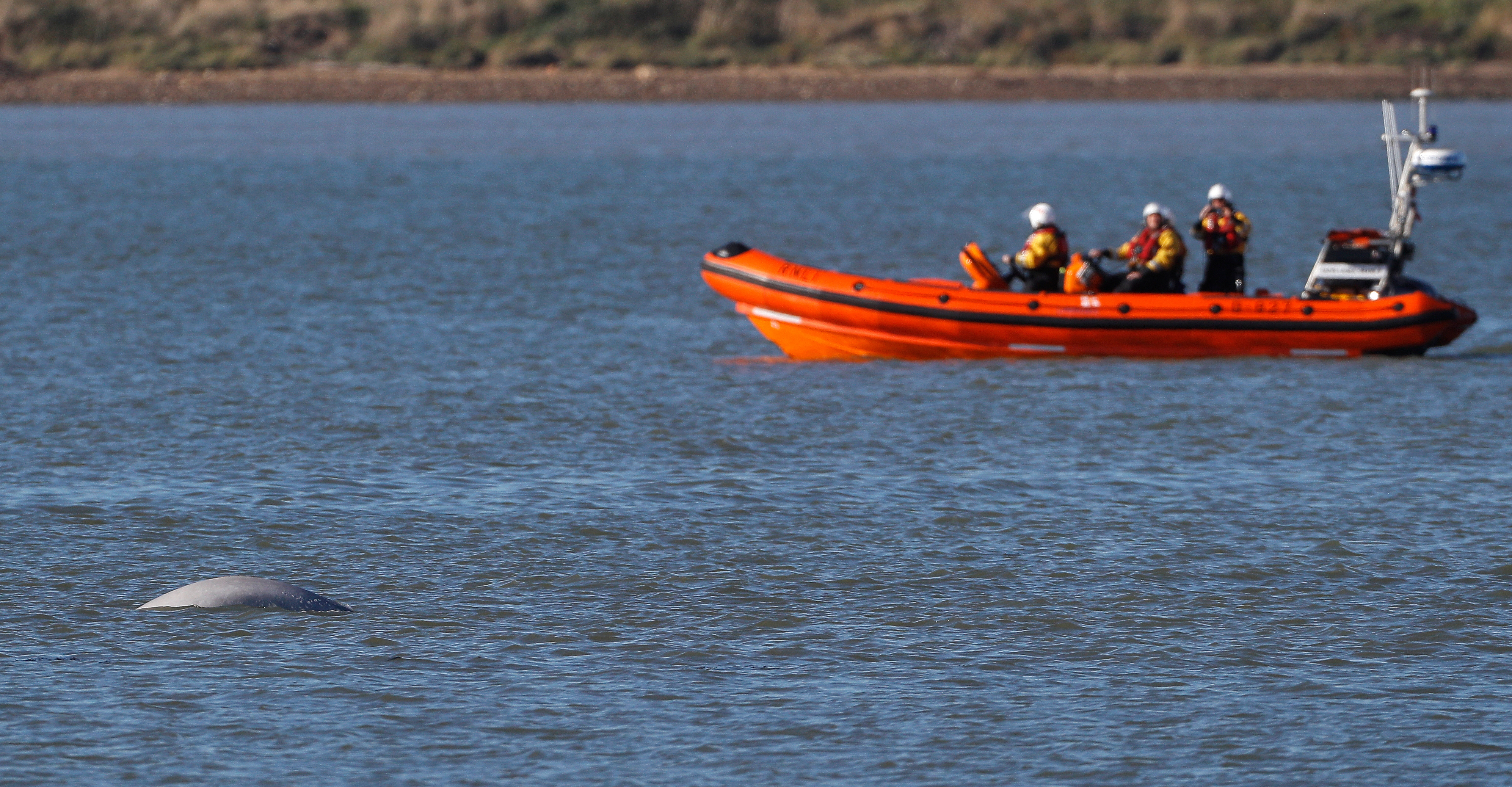Scientists puzzle over the mystery of a beluga pod spotted near Ireland
Researchers aren't sure why the animals were found so far from their Arctic habitat.

While preparing a new report on protected marine species in Irish waters, researchers spotted animals not usually seen off the coast of Ireland: three beluga whales.
The mammals’ typical range is in the Arctic Ocean, but they sometimes head south to sub-Arctic waters to avoid freeze-up. The Atlantic waters of Ireland, however, are further south than usual for the whales.
This is only the third sighting of beluga whales in Irish waters, and the first time a pod has ever been spotted there.
Typically, sightings of belugas that far south mean the animals have taken a wrong turn somewhere, researcher Mark Jessopp explained. But there have been other recent records of beluga whales sighted in more southern waters — including a beluga in the Thames in London.
The ObSERVE Aerial research project, conducted by University College Cork and other international partners, was a government-funded survey of protected marine species conducted over two summer and winter seasons.
Trained observers flew about 600 feet above the sea to document populations of whales, dolphins, porpoises, seabirds, sharks and sea turtles.
The airplane they used was fitted with special “bubble windows” that allowed the observers to, as Jessopp put it, “stick their head out of the plane and see the sea surface beneath.”
The observers spent many hours staring at the sea to record the occurrence of any animals as the plane passed overhead, Jessopp explained.
One day in the winter of 2015-16, the researchers were in the midst of a normal survey, marking the appearance and numbers of seabirds and dolphins, when they spotted three very different mammals on the surface of the ocean.
They were about 16 feet long in length, “distinctly” white, with no dorsal fin and a bulbous shaped head. Belugas. “There is simply nothing else they could have been!” Jessopp said.
“We were exceptionally lucky to have seen this pod,” he said. Observers are only able to see about a third of a mile from the bubble windows, so the plane had to fly right over them in order to spot the whales.
“There was actually a ‘what on earth?’ moment as the observers tried to reconcile what they were seeing with the fact that belugas would not ordinarily be seen in these waters,” he said.
“While I doubt that the migration pattern of beluga has changed, the spate of recent sightings in these more southerly latitudes may be indicative of changes in the ice conditions in the Arctic,” Jessopp said.
But, he said, sightings of belugas are still rare in Irish waters. “It’s nice to know that nature can still surprise us!”